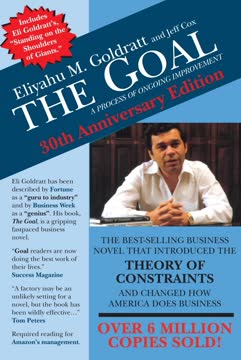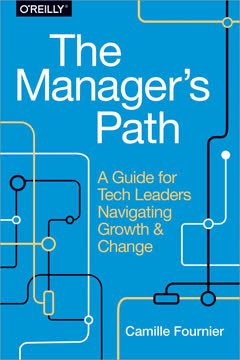Key Takeaways
1. Define Your Career Content and Build Strategic Skills
"Content matters. It should be one of the key factors you focus on when deciding on a job or a career."
Define your career content. Start by asking yourself what you enjoy doing, what challenges you, and what you would do even if not paid. This will help you identify the building blocks of your ideal career. Consider your hobbies, interests, and what makes time fly when you're engaged in an activity.
Acquire strategic skills. Focus on developing fundamental skills that are valuable across industries:
- Presentation skills
- Management skills
- Analytical skills
- Selling skills
- Basic financial understanding
- Strategic planning abilities
These skills will make you adaptable and marketable in various roles and industries. Don't limit yourself to just one career path; instead, build a diverse skill set that allows you to pivot and grow throughout your professional life.
2. Position Yourself for Success Through Effective Communication
"Speaking with clarity and impact is saying what you want to say in a way that your listener will hear it, embrace it, and act upon it in the way you want them to."
Master effective communication. Learn to articulate your ideas clearly and concisely, tailoring your message to your audience. This includes:
- Verbal communication
- Written communication
- Non-verbal cues
- Active listening
Prepare for key conversations. When approaching important discussions, such as negotiations or performance reviews:
- Define your objectives clearly
- Anticipate potential questions or objections
- Practice your delivery
- Be prepared with specific examples and data to support your points
Effective communication is crucial in selling yourself, your ideas, and your value to an organization. It can be the difference between being overlooked and being recognized as a key contributor.
3. Develop Performance and Relationship Currency
"Performance currency is the goodwill, reputation, and capital you create by doing your job well and creating stellar deliverables on discrete assignments."
Build performance currency. Consistently deliver high-quality work and exceed expectations. This involves:
- Meeting deadlines
- Providing thorough and accurate deliverables
- Taking initiative on projects
- Solving problems proactively
Cultivate relationship currency. Invest time in building strong professional relationships across all levels of the organization. This includes:
- Networking with colleagues
- Mentoring junior staff
- Collaborating effectively with peers
- Building trust with superiors
Both types of currency are essential for career advancement. Performance currency gets you noticed, while relationship currency helps you navigate the organization and gain support for your ideas and career progression.
4. Understand Your Work Profile and Leadership Potential
"Each of us has a profile at work. One of the most important facets of positioning yourself for success is to be self-aware."
Identify your work profile. Understand how you fit into the organization and how others perceive you. Common profiles include:
- The Good Soldier
- The Yes Man
- The Arguer
- The Safe Pair of Hands
- The Chief
Develop leadership qualities. Regardless of your current profile, you can cultivate leadership traits:
- Leverage: Utilize the strengths of your team
- Efficiency: Create clear processes and expectations
- Action: Make timely decisions
- Diversity: Embrace diverse perspectives
- Engagement: Connect with your team personally
- Responsibility: Own outcomes and be responsive
Understanding your profile helps you leverage your strengths and work on areas for improvement. Developing leadership qualities prepares you for advancement opportunities and increases your value to the organization.
5. Navigate Career Changes and New Opportunities Strategically
"The decision to change jobs, companies, or careers is among the most important you will ever make in your career."
Evaluate career change opportunities. Consider making a move when:
- You're offered significantly greater compensation
- There's potential for a new platform with greater responsibility
- You want a different career trajectory
- You're not being treated fairly
- You have to leave due to organizational changes
Assess risks and rewards. When considering a new opportunity:
- Research the company and role thoroughly
- Understand the compensation package and negotiate appropriately
- Consider the long-term career implications
- Evaluate how the move aligns with your personal and professional goals
Making strategic career moves can accelerate your professional growth and increase your earning potential. However, it's crucial to carefully weigh the risks and benefits before making a change.
6. Read the Signs and Manage Through Organizational Changes
"Much of the feedback that you receive can be nonverbal. Many professionals miss the messages being communicated to them, both the positive and negative, and therefore miss opportunities to advance, to correct an action, or even to leave a company before it is too late."
Develop situational awareness. Learn to interpret both verbal and non-verbal cues in your work environment:
- Pay attention to changing assignments or responsibilities
- Notice shifts in how you're included in meetings or projects
- Be aware of changes in your relationships with colleagues and superiors
Navigate organizational changes. When faced with changes such as new leadership or restructuring:
- Maintain a positive, constructive attitude
- Demonstrate your value to the new structure
- Be proactive in seeking information and offering solutions
- Build relationships with new decision-makers
Being able to read organizational signs allows you to anticipate changes and position yourself advantageously. It also helps you make informed decisions about when to seek new opportunities or how to adapt to evolving circumstances.
7. Continuously Evolve Your Skills and Adapt to Industry Disruptions
"Change is not just an inevitable part of any career, it's an inevitable part of life. But change leads to growth, and growth is good."
Embrace continuous learning. Stay relevant in a rapidly changing job market by:
- Keeping up with industry trends and technological advancements
- Seeking out new challenges and responsibilities
- Pursuing relevant certifications or additional education
- Engaging in cross-functional projects to broaden your skill set
Adapt to industry disruptions. Be prepared for significant changes in your industry:
- Stay informed about emerging technologies and their potential impact
- Develop transferable skills that are valuable across sectors
- Build a diverse professional network that spans multiple industries
- Cultivate an entrepreneurial mindset to identify new opportunities
In today's fast-paced business environment, the ability to adapt and evolve is crucial for long-term career success. By continuously updating your skills and remaining flexible, you position yourself to thrive amidst change and capitalize on new opportunities as they arise.
Last updated:
Review Summary
Strategize to Win receives generally positive reviews, praised for its practical career advice. Readers find it valuable for professionals at various career stages, particularly those starting out or looking to advance. The book's insights on building relationships, navigating corporate politics, and positioning oneself for success are highly regarded. Some reviewers wish they had read it earlier in their careers. While a few found it less relevant to their situations, most recommend it as a helpful guide for career development and advancement in corporate environments.
Similar Books







Download PDF
Download EPUB
.epub digital book format is ideal for reading ebooks on phones, tablets, and e-readers.





